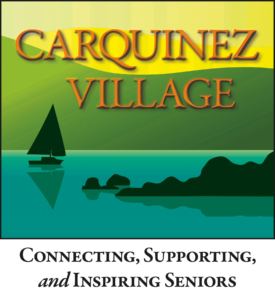By Judie Donaldson
I have developed a new–and unwelcome–habit in my almost 80 years of life. Can you guess what it is? Oh, that’s an unfair question. At my age, there are a lot of unwanted new habits that are all too possible: having less energy. being less agile, succumbing to naps, not being as hip as I used to be, dealing with others who see me as old. (That’s an annoying one.) But, today I am thinking about something else. What is it? Forgetfulness.
It is really annoying to forget the names of people, places, and things that I know are tucked away in the neurons of my brain. It’s just darn embarrassing to be in conversation, enthusiastically recounting a place I just visited, and, oh no, “it” is happening again. I can’t remember the name of the place I’m describing. I used to smile and quip, “Sorry, it’s just another senior moment.” But, I’ve had enough of telegraphing my momentary weakness. I decided that there must be something I can do about it. Passivity, I reminded myself, is rarely an intelligent option.
So, I did what I usually do. First, read and learn and, second, develop an action plan. As you know from my previous column, there is lots to be learned about what’s going on in our brains and from the research that’s being conducted on the brain. I’m admittedly a novice in this arena. In this regard, let me underscore that I am only able to share a speck of information about the world of neuroscience. But, I’m curious, that’s for sure.
Is this momentary forgetfulness a necessary part of aging? Can anything be done to avoid or influence it? Everything I have learned is encouraging. No longer is it assumed that memory loss is inevitable. Yeah! But, the brain, like our other organs, as I interpret it, can get tired and lose capacity. This is less visible and more mysterious in the brain, say, than witnessing our stomach losing muscle. But, just as we can exercise to influence the state of our stomach muscles, we can exercise to positively impact the brain.
How? Well, you may be getting tired of this answer because you’ve heard it before. Three things keep cropping up again and again. Yes, a healthy diet, exercise, and getting adequate sleep lay the groundwork for a healthy working memory. I ought to dub these, “the miraculous three.” They do things like grow new brain cells, boost neurotransmitters, and protect the hippocampus against shrinkage.
Sleep plays a key role in helping to consolidate our memories so that we can recall them. A healthy diet is as good for our brains as it is for our hearts. And exercise? Well, researchers have concluded that it is the best preventative memory drug of all! There is compelling evidence that exercise helps build a brain that not only resists shrinkage, but increases cognitive abilities. Intense exercise will reap the greatest reward. But, do what you can. Get up and walk around the room periodically, if that’s what’s possible for you.
There are three more recommended strategies, and the first is essential. Keep mentally active! Just as physical activity keeps the body in shape, mentally stimulating activities keep your brain and its memory function in shape. Find something you like to do. Do crossword puzzles. Play bridge. Learn something new. For those with computers, there are innumerable free brain training applications. Just go to “Google Play” and search brain training. Remember that Nike advertisement? “Just do it.” It applies here. Don’t put it off. Make time in your day.
The last two suggestions are somewhat surprising. The first is to nurture your friendships. They may protect you from cognitive decline! Researchers at Northwestern University conducted a study of “SuperAgers” who were 80 or older and had memories better than those 20 or 30 years younger. Although it wasn’t the only distinguishing factor, the SuperAgers stood out in the degree to which they had warm, caring, and trusting friendships. So, nurture yours! Pick up the phone and call your friends. Don’t wait for someone to call you.
Get out socially. This is where Carquinez Village comes in. Attend our activities. Just think of it this way. You’ll be helping your brain! Make new friends. You’re not too old. Call me at 707-297-2472 if you want to learn about our programs or if you like to attend one and would like a ride or would rather go with someone.
Lastly, get and stay organized. You are more likely to forget if things are in disarray. Write things down and, as you do, repeat each entry out loud. This will help to cement it in your memory.
So that’s it. Six things. Eat healthy, sleep well, exercise as best you can, keep mentally active, nurture friendships, and get organized. Speaking of organizing, I need to create my action plan. Hmmm.
Clearly, our memory capacity depends on us doing our part. From what I’ve read, the research community is doing its part. An article on scientific research and aging A Dec. 10 article in the San Francisco Chronicle reported that significant progress is being made in both extending the “life span” and increasing the “well span.” Additionally, Dr. Bruce Miller, Director of UCSF’s Memory and Aging Center, was quoted as saying that he is hopeful that neurodegenerative diseases will be eliminated in our lifetime. Sounds good to me!







Leave a Reply